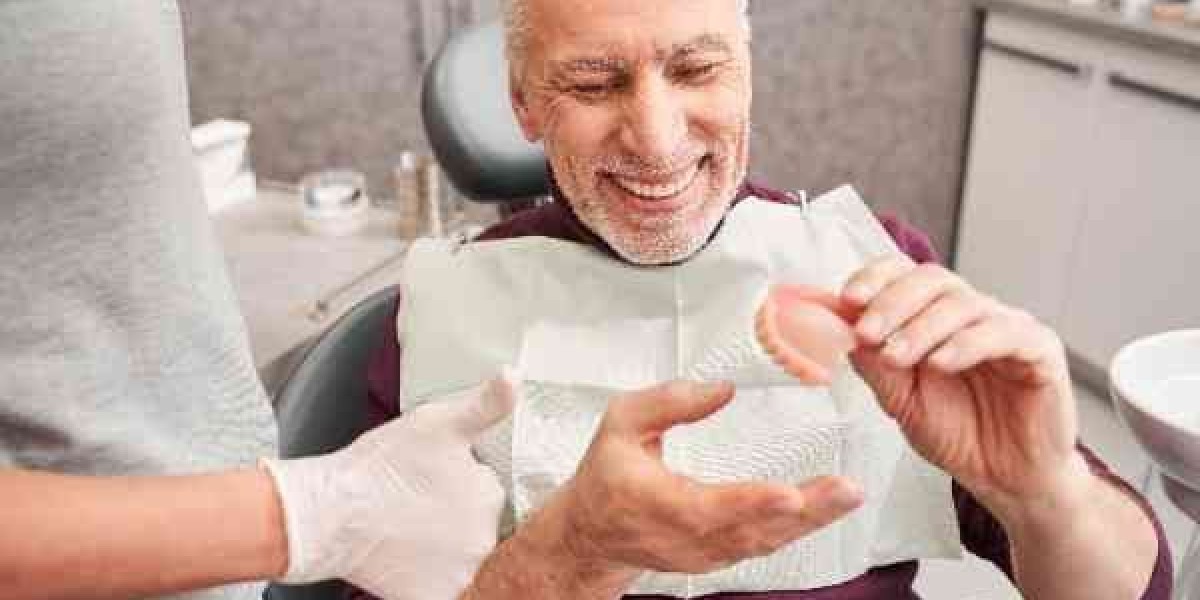Your teeth do more than help you smile for photos or enjoy your favourite meals they’re essential to your overall health. But how do you know when something minor turns into a dental emergency? Many people ignore early symptoms, only to face serious issues later. Delaying treatment can lead to severe pain, infection, or even tooth loss.
If you’re feeling discomfort, swelling, or anything out of the ordinary, don’t guess act. Knowing when to contact an emergency dentist in Kilmarnock could save you time, money, and your smile.
Here are five clear signs that you might need urgent dental attention, and why getting help quickly is the best decision for your oral health.
1. Persistent or Severe Toothache
Toothaches aren’t just annoying they can be a red flag.
Possible Causes:
- Deep decay
- Infected pulp
- Cracked or damaged tooth
- Gum infection
When It's an Emergency:
- Pain lasts more than 48 hours
- Throbbing or sharp pain
- Pain worsens when lying down
- Swelling around the jaw or cheek
What to do:
- Rinse your mouth with warm salt water
- Use a cold compress on the outside of your cheek
- Call an emergency dentist in Kilmarnock without delay
2. Knocked-Out or Loose Tooth
A tooth that’s been knocked out or loosened (without baby tooth fairy permission!) needs urgent care.
Scenario | Action | Time Sensitivity |
Knocked-out adult tooth | Rinse gently & place back in socket or milk | Get help within 30 minutes |
Loose adult tooth | Avoid touching or wiggling | Seek urgent dental care |
Avoid:
- Scrubbing the root
- Wrapping a tooth in tissue
- Delaying treatment
An emergency dentist in Kilmarnock can often save a tooth if you act quickly.
3. Swollen Gums, Face, or Jaw
Facial swelling might look like you’ve lost a boxing match, but it's no joke.
Warning Signs:
- Red, tender or bleeding gums
- Swelling around the jaw or under the eyes
- Difficulty breathing or swallowing
Likely Culprits:
- Abscessed tooth (infection)
- Gum disease (periodontitis)
- Sinus-related dental pain
Action Steps:
- Don’t apply heat to the area
- Use ice packs to reduce swelling
- Get to an emergency dentist in Kilmarnock straightaway
A severe infection can spread to other parts of your body—this is a medical emergency.
4. Dental Trauma from Accidents
Whether it’s a fall, sports injury, or an accidental bite into a rogue olive pit, trauma can damage teeth and soft tissues.
Common Injuries:
- Cracked, chipped or broken teeth
- Soft tissue injuries (gums, lips, tongue)
- Jaw dislocation
Dental Emergency Tips:
- Save any tooth fragments
- Apply pressure to bleeding areas
- Visit a dentist or A&E based on severity
If bleeding doesn’t stop after 10 minutes or there’s visible tooth damage, you need an emergency dentist in Kilmarnock ASAP.
5. Sudden Sensitivity or Bleeding
Sensitivity to hot, cold or sweet foods isn’t always normal. If it suddenly starts—or bleeding appears—it could be a deeper problem.
Possible Causes:
- Exposed tooth roots
- Receding gums
- Worn enamel
- Advanced gum disease
A hygienist in Kilmarnock can help you manage gum health before things spiral into emergency territory. However, if bleeding or pain worsens, don’t wait.
How Can a Hygienist in Kilmarnock Help Prevent Emergencies?
While emergency dentists are your lifeline in a crisis, a hygienist in Kilmarnock plays a critical preventive role.
Benefits of Regular Hygiene Visits:
- Early detection of gum disease and decay
- Tailored advice on brushing and flossing
- Professional cleaning that removes plaque and tartar
- Fresh breath and healthier gums
Service | Frequency | Benefits |
Scale & polish | Every 6 months | Keeps plaque in check |
Gum assessment | Annually | Catches early gum disease |
Oral health advice | Every visit | Improves home care habits |
Prevention is not just better than cure—it’s cheaper too.
Quick Checklist: Is It an Emergency?
Symptom | Emergency? | Action |
Mild, short-term toothache | No | Monitor & see hygienist |
Persistent pain/swelling | Yes | Call emergency dentist |
Knocked-out tooth | Yes | Urgent treatment needed |
Gums bleed when brushing | Maybe | Book hygiene appointment |
Facial swelling & fever | Yes | Seek immediate help |
When to Call a Hygienist vs an Emergency Dentist
It’s not always obvious whether your dental issue is urgent or just needs a professional clean and some advice. Understanding the difference between when to visit a hygienist in Kilmarnock versus calling an emergency dentist in Kilmarnock can help you make the right decision quickly.
Here’s a quick comparison:
Dental Concern | See a Hygienist | See an Emergency Dentist |
Bleeding gums when brushing | ✅ Yes | ❌ No |
Sudden, severe toothache | ❌ No | ✅ Yes |
Tooth knocked out or broken | ❌ No | ✅ Yes |
Persistent bad breath | ✅ Yes | ❌ No |
Swollen face or jaw | ❌ No | ✅ Yes |
Gum disease management | ✅ Yes | ❌ No |
Routine scale and polish | ✅ Yes | ❌ No |
Infection with fever | ❌ No | ✅ Yes |
A hygienist in Kilmarnock focuses on prevention, cleaning, and spotting early signs of gum disease, while an emergency dentist in Kilmarnock handles urgent pain, trauma, and infections. If you’re in doubt, call a dental professional who can guide you to the right care pathway.
How to Prepare for a Dental Emergency
Dental emergencies strike unexpectedly—usually at the worst times. Being prepared can make all the difference in how you respond and recover. Here are practical steps you can take today to be ready:
What to Keep in a Dental Emergency Kit:
- Sterile gauze– to stop bleeding
- Pain relief– such as ibuprofen or paracetamol
- Small container with a lid– ideal for transporting a knocked-out tooth (place it in milk or saliva)
- Salt– for warm saltwater rinses to ease discomfort
- Cold compress– to reduce swelling
- Gloves– for safe handling of oral injuries
- Antiseptic mouthwash– helps reduce infection risk
- Emergency contact info– including your local emergency dental provider
Bonus Tips:
- Save the number of a trusted emergency dentist in your phone
- Keep the kit accessible at home, work, or in your car
- Know the location and hours of your nearest emergency dental service
Preparedness means faster action and a better outcome, whether it’s for yourself or someone else.
Conclusion: Your Next Step Could Save Your Smile
Dental problems rarely fix themselves. Whether it’s sudden pain, swelling, or trauma, quick action can prevent long-term damage. If you notice any serious symptoms, don’t delay reach out to an emergency dentist in Kilmarnock right away. For ongoing protection, routine check-ups with a hygienist in Kilmarnock are essential. Prevention and prompt care work together to keep your smile healthy and pain-free. Don’t wait for things to get worse know when to act and take the right steps at the right time. Your smile is worth it.








